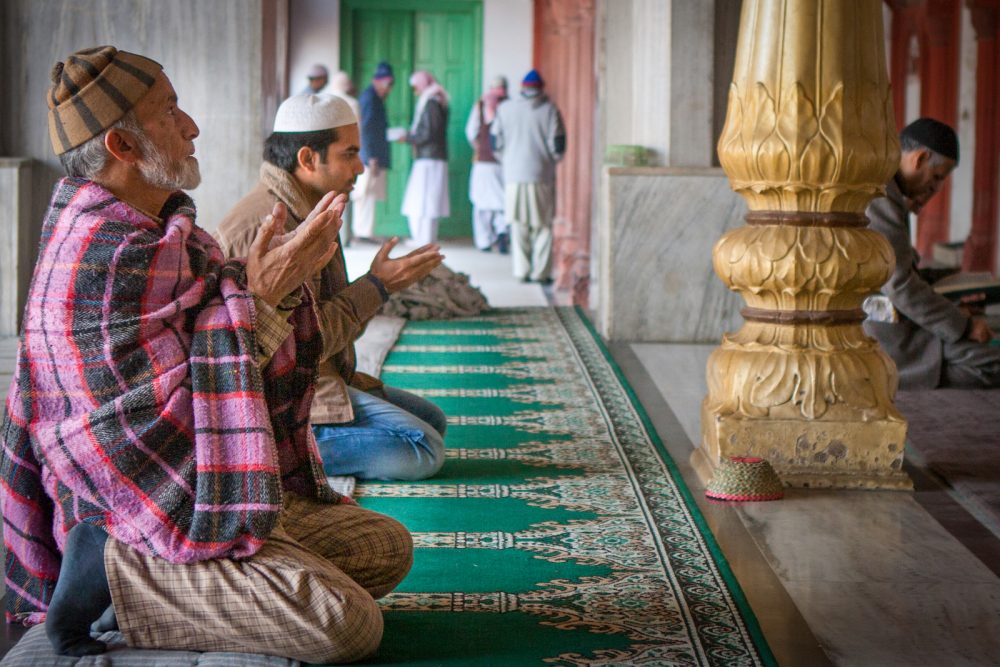At the core of Islamic practice stand the five pillars of Islam: the profession of faith, ritual prayer, alms-giving, fasting, and the pilgrimage to Mecca.
Muslims from every culture and country observe these religious requirements. But performing these obligations will never fulfill their need for a savior.
These five pillars, described below, form a framework of life for Muslims and are woven into their everyday activities.
Shahada: The Profession of Faith
The shahada is a two-part statement that articulates the central tenets of Islam. The first part states that there is no god but God, meaning that no other being has the right to be worshiped.
The second part of the shahada professes the belief that Muhammad is God’s messenger or prophet.
Muslims believe that to join Islam, a person must recite the shahada with sincere conviction.
Salat: Ritual Prayer
According to Islam, there are proper ways and times to perform ritual prayers. They must be done at dawn, noon, mid-afternoon, sunset, and after dark. During these prayers, Muslims face Mecca, which is the location of the Kaaba, the most sacred site in Islam.
Prayer can be performed anywhere—in classrooms, airports, fields, or on the side of the road. In cities, it’s common to see men praying on sidewalks after the call to prayer sounds. In some countries, hotel rooms have small signs pointing toward Mecca so Muslim guests know which way to face while praying.
Zakat: Alms-Giving
According to Islamic law, wealthy Muslims must donate part of their income to the poor and needy. Also called a charity tax, this contribution is usually fixed at 2.5%. Many Muslims believe they will be spiritually rewarded according to their acts of charity.
Throughout Islamic history, alms have gone toward building mosques, hospitals, and schools in poor communities.
Sawm: Fasting
During the Islamic month of Ramadan, Muslims fast from food and drink during daylight hours.
Muslims also use this time to refocus their devotion to Islam. Many will read through the entire Quran or perform extra prayers during the month.
Fasting is meant to help Muslims identify with those who are hungry and thirsty. But it’s also a time when many people enjoy special traditions and foods after breaking the day’s fast at sunset. Some households consume more food during Ramadan than any other month of the year.
Hajj: The Pilgrimage
Muslims who are financially and physically able are required to go on a pilgrimage to their holy city of Mecca in Saudi Arabia. This five-day hajj is seen as the spiritual highlight of their lives—and one that absolves them of their sins.
During the hajj, millions of Muslims gather together to perform several symbolic rites.
Prayer Points
No matter how perfectly Muslim men and women observe the five pillars of Islam, their need for Jesus Christ is the same. Please join in praying that people from every Muslim people group will know Christ’s saving power.
- Ask God to reveal Himself to Muslims and to draw them to the truth that salvation is found in Jesus Christ alone.
- Pray that Muslim men and women will find no satisfaction in their religious performances, and pray they will seek to truly know the Father.
- Pray for more field workers who will go and introduce Muslims to the lasting hope, peace, and joy of the Savior.
A Frontiers team embraced a vision to see God move in the heart of Islam. Now they’re witnessing that vision come to life..
